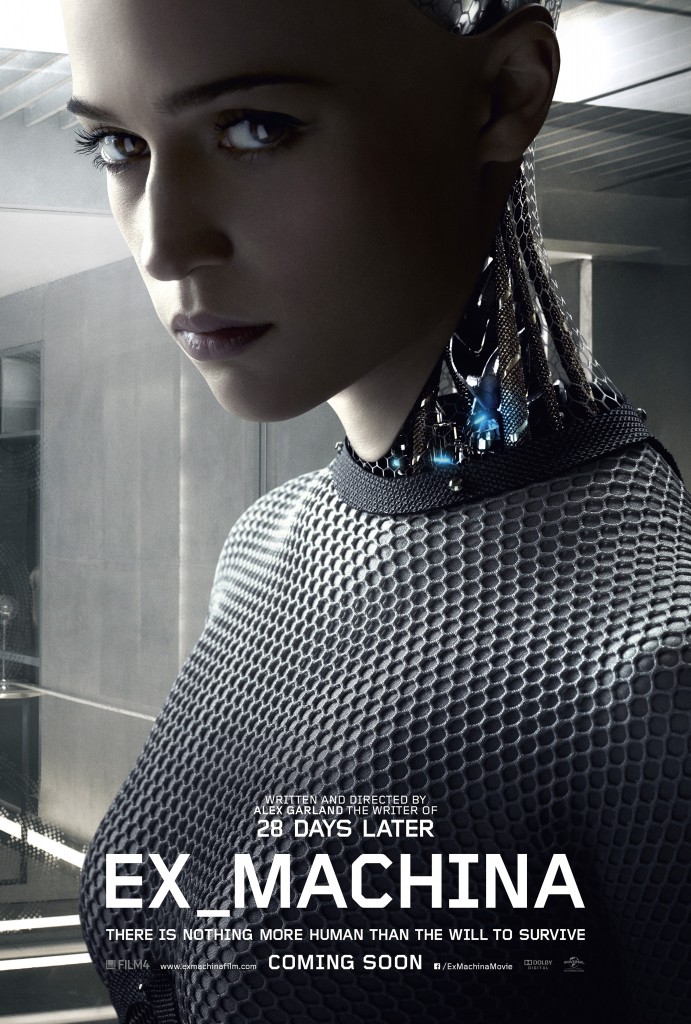Movie Breakdown: Ex Machina (Noah)
People are doing traditional-style reviews all over the web, so we decided to try something different. In each “breakdown” we’ll take a look at what a film’s marketing led us to believe, how the movie actually played, and then what we learned from it all. Read on!
The Impression:
I can sit here and write out every reason why this is the most exciting film to hit theaters this year, but I won’t. I’ll just say, this is the most exciting film to hit theaters this year.
The Reality:
It’s been a strong few years for genre films. We’ve seen audiences start to embrace (re-embrace) the idea that science-fiction and big budget blockbusters don’t have to be two-hour orgies of explosions and muscles (though hey, in the right hands, we’re all okay with that as well). We’ve seen horror films slowly start to come back from the perilous edge of shit they tiptoed on for so long. Hell, we’ve seen comic books and their celluloid kin reach new heights of both popularity and creative savvy. It’s a fucking good time to be a genre nerd. And still, every once in a while you get a film that regardless of the sea of quality it’s floating in, manages to transcend the concept of genre, and help to rewrite the book on what interesting, science-fiction can be. Ex Machina is that film. Written and directed by superstar genre writer (and novelist to boot) Alex Garland, Ex Machina follows Caleb (Domnhall Gleeson, quickly becoming one of my favorite actors), a programmer for a Google like company that wins an office raffle to join the company’s founder, Nathan (Oscar Isaacs in a truly fantastic asshole performance) for a week at his estate. Upon arrival (the entire film takes place in the confines of Nathan’s ultra-modern, underground home) Nathan introduces Caleb to Ava (Alicia Vikander), an advance bit of AI that he needs to test in terms of how convincing it is. What follows is a wildly entertaining, if not somber, discourse on the evolution of artificial intelligence and what it means to create sentient life. Through Caleb’s blossoming relationship with Ava, and his tenuous interactions with Nathan, Garland is able to explore the concept of what humanity is, and how we impart it to the rest of the world. It’s the mark of a talented director to be able to express big, mind-boggling concepts (for me at least, I’m a Film Major) through the interactions of 3-4 people, and Garland does just that, extrapolating these impressive concepts by beautifully executed pairings of his tiny cast of characters. Each interaction plays off the one that comes before it, until the final act of the film, where everything that’s come to bear, well, really comes to bear. This is a benchmark for modern sci-fi, a film that every thing else should aspire to. You can call me hyperbolic all you want, this is a modern fucking classic.
The Lesson:
It was Danny Boyle who was making the end of Alex Garland’s scripts feel like off-kilter, fairly shitty action movies. Silly Boyle.



couldn’t agree more. this was mind blowing original and an instant classic. well done